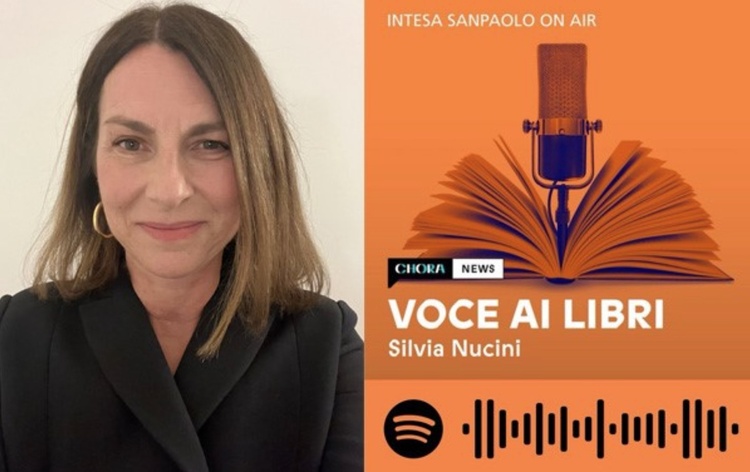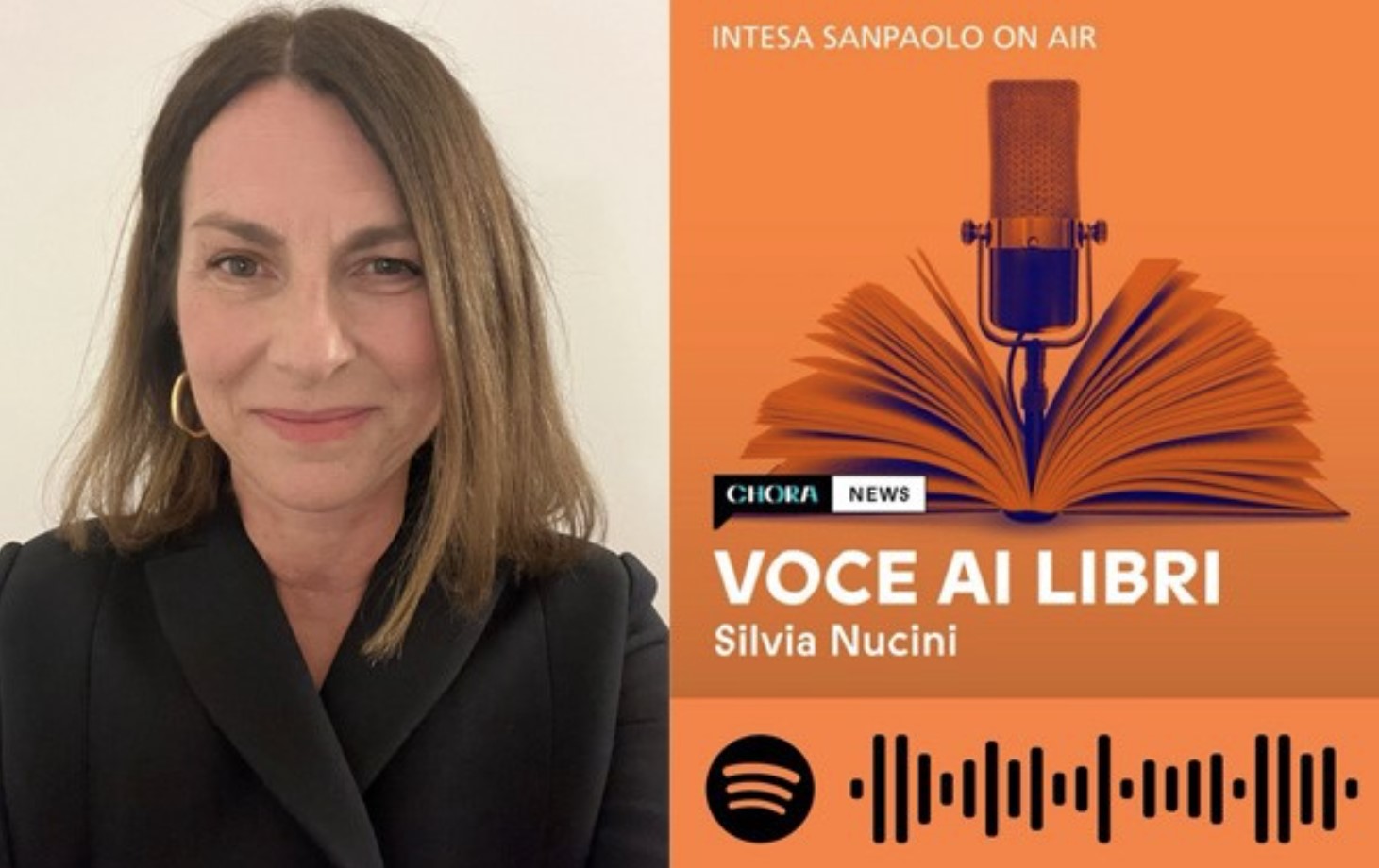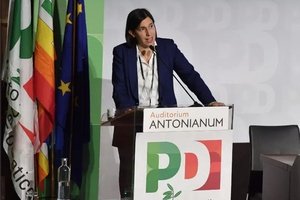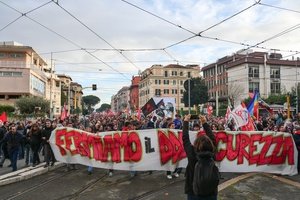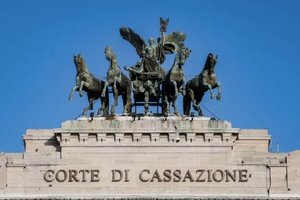The Week of the Italian Language in the World provided the perfect opportunity to speak with a journalist who, considering this year’s theme (Italian and Literature: The World Between the Lines), certainly has something to teach us, as Silvia Nucini has read thousands of lines over the past two years.
For a long time, the pen was the tool with which she wrote and explored the world, telling the stories of both famous people and everyday individuals. Then, she donned headphones and took her place behind the microphone.
Journalist, writer, author and podcaster (more or less in that order), her career began right after completing her master’s in journalism at the Catholic University of Milan.
Her studies led her to “do whatever needed to be done” in the editorial offices of various magazines, including Elle, where she worked in the beauty section. Although she didn’t mind writing for the section, she felt the need to challenge herself by “describing reality, which is what I do best”.
Her 18 years as Senior Editor of Stories at Vanity Fair Italia, a weekly magazine of enormous repute, showcased her talent and sensitivity in capturing the essence of the people she wrote about through “interesting interviews and reports that allowed me to travel extensively”.
Nucini recalls how, thanks to the excellent public response, she had great freedom in proposing stories at Vanity Fair. “Also,” she emphasised, “I had enlightened directors who believed in the importance of experiencing things in person to tell them properly.”
During that time, she met celebrities from the world of fashion, like Dolce & Gabbana and Renzo Rosso, from music, including Blanco and Sfera Ebbasta, and from cinema, such as Riccardo Scamarcio and Kasia Smutniak, among many others.
But it’s the stories of everyday people that particularly capture her attention; stories that reveal their joys, as well as the hardships and struggles life throws at them.
“Working at Vanity Fair allowed me to tackle a lot of topics that later became major talking points,” Nucini explained. One such topic was motherhood, which Nucini explored in 2010 with È la vita che sceglie (Life Makes the Choice), a novel that depicts motherhood in all its forms.
Then the pandemic hit, and with its suspended sense of time, it made everyone reflect and “ask myself if I wanted to continue doing my job in the same way”. The answer wasn’t immediately clear, so the journalist decided to resign “without yet having a specific plan in mind”.
Over time, her ideas became clearer and took shape in Voce ai libri (A Voice for Books), a podcast which aired its first episode on May 20, 2022.
“I had never written about books, although I’ve always read a lot,” she said, talking about the genesis of her podcast. “In my professional life, I’ve met many people, and of all the kinds of well-known individuals, I’ve always particularly enjoyed interviewing writers.
“I did some research and looked at what literature podcasts were out there. I found some that reviewed books and others that told the lives of writers, but none that actually interviewed them.
“I think it’s important to let the authors describe their books, because I often find a gap between my perception and the author’s intentions, which is part of the charm of literature.”
With a remarkable ability to draw listeners into the heart of a novel without ever revealing the plot, Nucini guides the author in recounting the origin of their story and unveiling its essence.
Selecting the weekly novel requires a high level of personal involvement. “I need the story to speak to me, to stir emotions in me, and to carry a relevant message,” explained the journalist who also has an objective criteria list that helps her in the selection process.
“Since the podcast is in Italian, the books must be Italian or by authors who speak the language. The chosen texts are always very new, released in the weeks just preceding the episode.
“And I try to balance female and male authors, as well as different publishing houses.”
It’s demanding and sometimes exhausting work. In two years, a whopping 106 episodes have been produced, each one focusing on a single book.
“I’m always reading, constantly reading,” the journalist said, smiling. “Now that I’m going on holiday, I’m taking a break from reading … or at least I’ll read foreign authors I don’t usually have time for during the year.”
Debut authors often find themselves in front of the microphone. “The first book you write is a kind of necessity,” said Nucini. “That aspect fascinates me because when you write that first story, you choose what to focus on. The urgency reveals a slightly irrational side that strikes me deeply. I’ve also learnt that through writing, one can express the inexpressible, which is beautiful, healthy and liberating.”
But along with urgency, the definition of a good book, according to Nucini, includes several other aspects such as craftsmanship and, “of course, style, which for me is still fundamental”.
Nucini believes that the importance of literature, even in a fast-paced time like ours, remains central. “If you read, you live ten thousand lives, you have experiences that your own life may never offer, but you live them through others, and those are wonderful journeys. For young people, reading helps them discover a dimension with a more human rhythm, a slowness they’re not used to.”
The transition from writing to podcasting was a learning opportunity that taught the journalist how to use her voice. “After hiding behind my writing for years, discovering I had a literal voice was a revelation,” she revealed.
In the pages of those more than a hundred books she’s read so far, the podcast host has also come to appreciate just how multifaceted reality is.
“The world is less polarised and less simple than how it’s often portrayed.”

